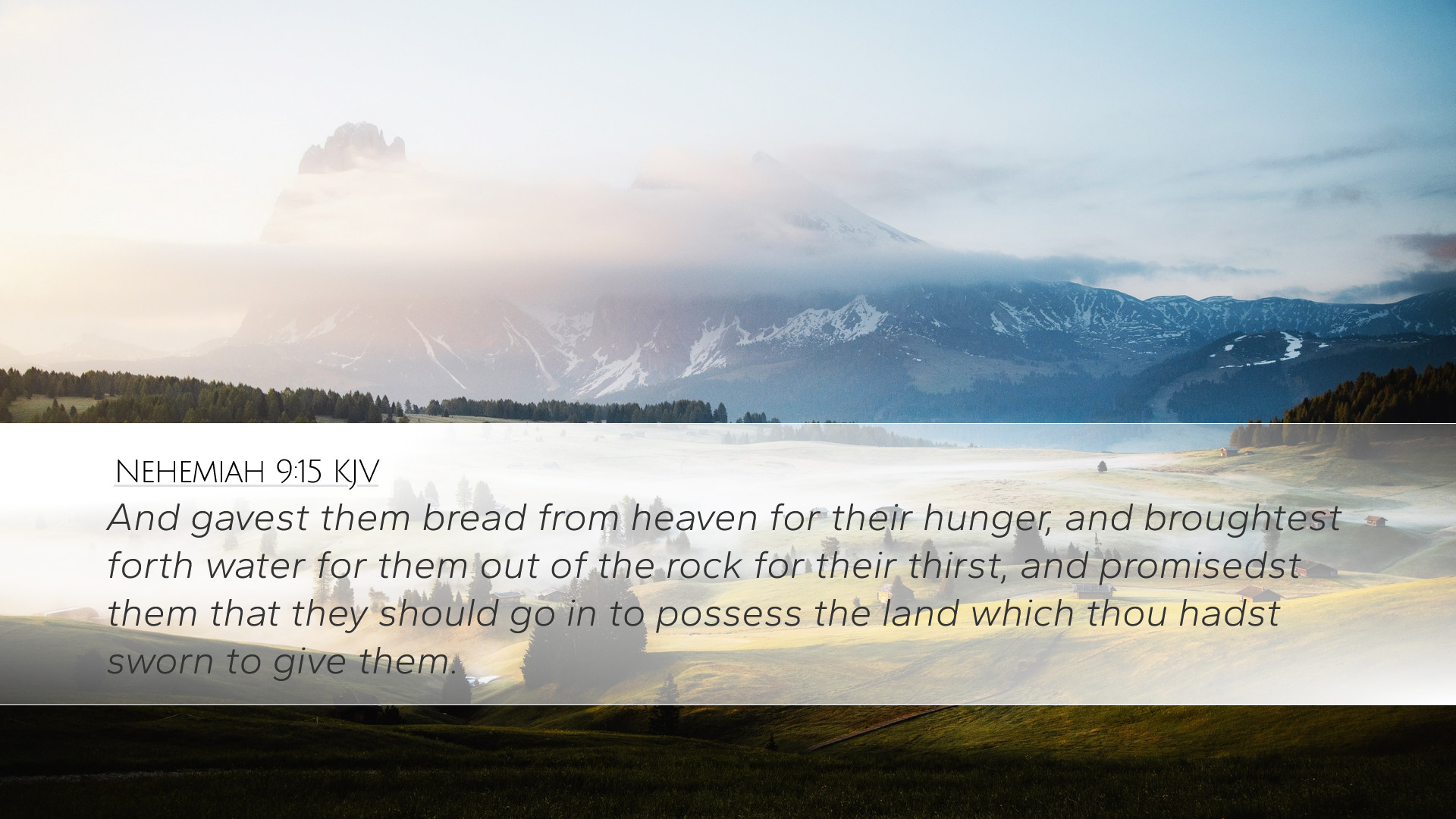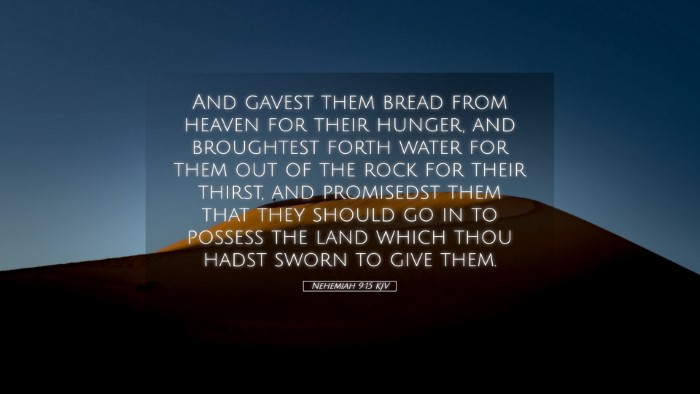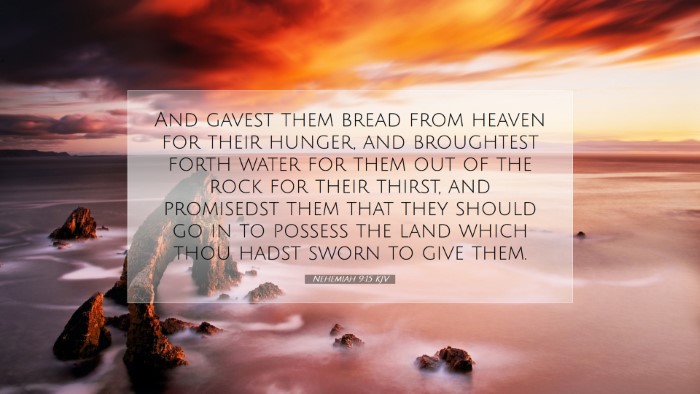Commentary on Nehemiah 9:15
Verse Reference: Nehemiah 9:15 - "And gavest them bread from heaven for their hunger, and broughtest forth water for them out of the rock: for their hunger, and broughtest forth water for them out of the rock: for their hunger, and broughtest forth water for them out of the rock: for their thirst, and toldest them to go in, to possess the land which thou hadst sworn to give them."
Context and Significance
The book of Nehemiah captures a pivotal moment in the history of Israel, highlighting themes of restoration and reconciliation. In chapter 9, the Israelites gather to reflect on their past, acknowledging God's faithfulness despite their disobedience. Nehemiah 9:15 serves as a reminder of God’s providential care, especially during their wilderness journey, emphasizing both physical sustenance and spiritual guidance.
Commentary Insights
1. Matthew Henry's Commentary
Henry expounds on the notion of God's provision during the Israelites' time in the wilderness, particularly emphasizing the miraculous nature of the bread from heaven (manna) and the water from the rock. He observes that these miracles serve a dual purpose: they demonstrate God’s faithfulness in meeting the physical needs of His people while also pointing to deeper spiritual truths. The bread symbolizes sustenance that transcends mere physical nourishment and alludes to the spiritual bread offered in Christ (John 6:33-51).
2. Albert Barnes' Commentary
Barnes highlights the significance of divine provision through a historical theological lens. He notes that the miraculous supply of bread and water during the Israelites' exodus shaped their identity as the chosen people of God. This provision underscores the covenant relationship sustained by God's faithfulness. Barnes points to the contrast between the grace experienced by the Israelites and their subsequent lapses into disobedience, showcasing the depth of human frailty against the backdrop of divine grace.
3. Adam Clarke's Commentary
Clarke places emphasis on the practical implications of the provisions provided by God, noting that the bread from heaven (manna) was a constant reminder of reliance on divine sustenance. He discusses the importance of the thirst quenched by water from the rock, emphasizing not only physical hydration but the spiritual implications of these actions. Clarke suggests that these events prophetically foreshadow Christ, reflecting on Paul’s mention of the spiritual rock that followed them (1 Corinthians 10:4).
Theological Themes
- Divine Provision: This verse highlights God's ongoing care and provision for His people. The mention of bread and water illustrates that God attends to both material and spiritual needs.
- Covenant Faithfulness: The gifts given during the wilderness journey reflect God's commitment to His covenant promises. The notion of possessing the land signifies the fulfillment of God’s promises amidst human unfaithfulness.
- Christological Interpretation: The imagery of bread and water serves as a typology leading towards Christ, evident in both the feeding of the 5000 and the Samaritan woman at the well, linking the Old Testament experiences to New Testament revelations.
Practical Applications
This verse invites pastors, students, and scholars to reflect on the multifaceted ways God provides for His people, encouraging a deeper understanding of divine grace. The implications are profound for contemporary believers:
- Trust in God's Provision: Believers are encouraged to trust in God's ability to meet their needs, both physical and spiritual, as seen in the faithfulness showcased in the wilderness.
- Reflect on Past Deliverance: Just as the Israelites reflected on God’s past provisions, modern believers are called to remember and recount the ways in which God has worked in their lives.
- Invitation to Spiritual Nourishment: The manna points believers to Christ, inviting them to seek sustenance from Him, as He is continually offering nourishment for the soul.
Conclusion
Nehemiah 9:15 stands as a testament to God's unwavering faithfulness amid human frailty. It encourages believers to reflect on God's provisions in their lives, fostering a spirit of gratitude and worship. The rich insights from the commentaries of Henry, Barnes, and Clarke further illuminate the spiritual depths of this verse, urging believers to acknowledge the sufficiency of God's grace through the lens of both historical context and theological insight.


